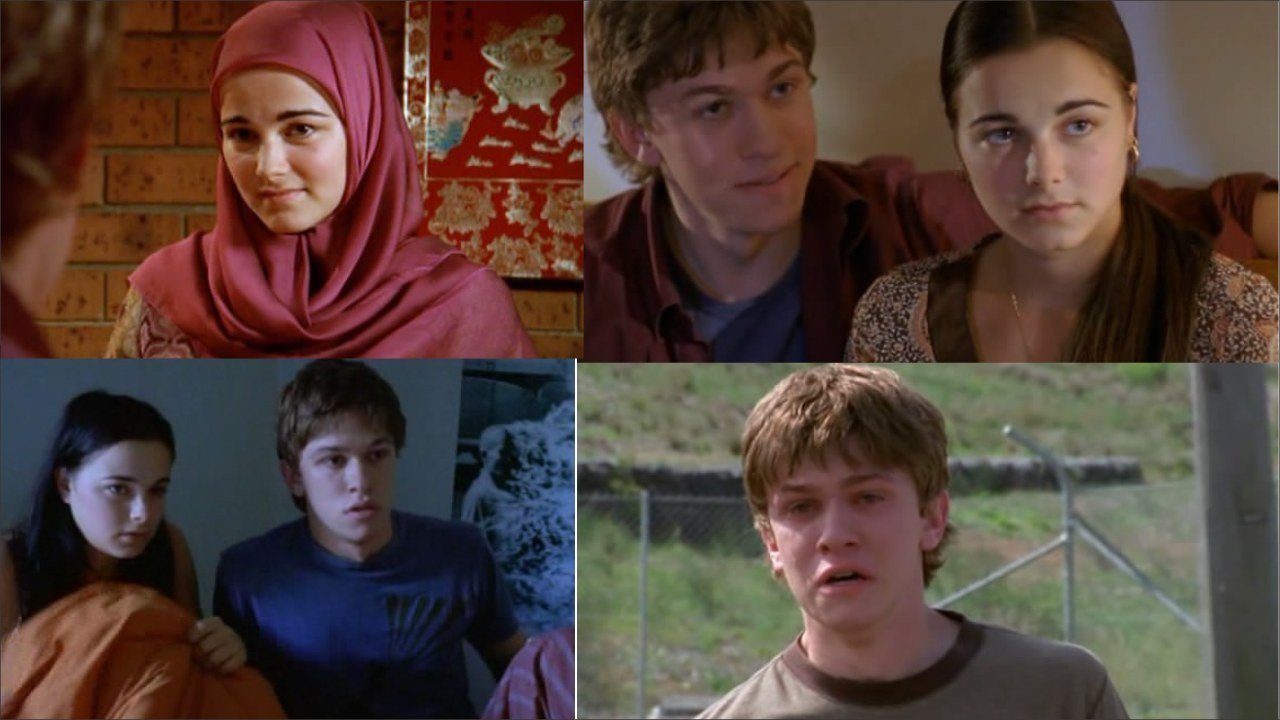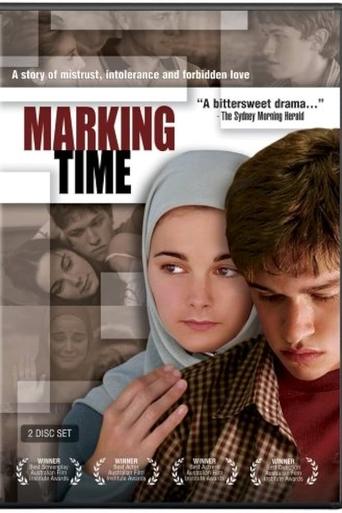Rio Hayward
All of these films share one commonality, that being a kind of emotional center that humanizes a cast of monsters.
Billie Morin
This movie feels like it was made purely to piss off people who want good shows
Leoni Haney
Yes, absolutely, there is fun to be had, as well as many, many things to go boom, all amid an atmospheric urban jungle.
Dana
An old-fashioned movie made with new-fashioned finesse.
ozziefilmbuff
"Our ABC" (aka; the Australian Bolshevik Collective) has done it again in offering yet another shallow "message series" brim-full of leftist political bias and innuendo (oh-so-cleverly masquerading as a modern-day antipodean Romeo and Juliet themed love story).A painful box ticking exercise with all those tired old reoccurring themes covered.White Rural Australians - Racists (tick) Refugees - wronged innocents and vulnerable victims (tick) Coalition (conservative party) supporters - evil or ignorant (tick) Mainstream Australian culture - xenophobic (tick) Ethnic culture - whimsically exotic, tolerant and ethically superior (tick) Promoted as a coming of age tale amid the backdrop of the Sydney Olympics and turbulent domestic politics, the hidden motives of director and producer are easily identifiable.Hal's dad - a former Olympian in the story (who better to play a morally righteous character in sport-living Oz?), Rania - Hal's love interest - played with the dexterity and complexity of a Carmelite nun (she even draws this comparison herself, to make doubly sure we all get the point!) And Hal himself, a bloke so disillusioned at the victory of the morally repugnant Howard government that he up and leaves for Afghanistan at the end of the series (an painfully obvious gesture of support to the convicted Aussie-born terrorist David Hicks), in pursuit of the woman he loves.And on and on it goes.Some of the supporting characters, particularly Hal's friends, are well-written and clearly identifiable, but ultimately remain cartoonish stereotypes.Far from this series serving as a historical source for a particular era in Australian history, I am confident it will be remembered as just another example of the ABC's all to familiar leftist bias, (one which makes "Triumph of the Will" seem balanced in comparison!).So hostile towards the Howard Government back in 2003, in hindsight it's easy to comprehend now how one of it's own (former ABC journalist Maxine McKew) was inspired to defeat John Howard himself in the most recent general election.In no other country (certainly not a developed one) have I seen a more painful display of political bias from a national broadcaster. AVOID marking time like the plague (unless you enjoy blindingly conspicuous and badly written left-wing propaganda).
Kevin Griffith
The portrayal of youth in small town Australia is spot on. I lived in Manjimup, WA. I recognised the people. The main characters Hal's direct to camera talking would normally annoy me but in this production the actor carries it off. His father conveys the schoolteacher as a loving but serious minded person like so many teachers. His sharing a joint with his son must be familiar to many baby boomers who are now parents of young adults. The only criticism is that Randa is not as dark skinned as most Afghanis probably because the actress is of Yugoslavian background. Anyone who is familiar with small town Australia cannot fail to relate to John Doyle's excellent script.
Yukle
This is the greatest show ever. It portrays the real message refugees received from the majority of Australians when they tried to enter the country illegally and yet were sent away or locked up in detention (even the children; in fact, many are STILL there). The message is not forced in your face, it is subtle and allows room for your own opinion. Hal, the story's narrator, is like a lot of rural Australians: lazy, indifferent and a "light" user of drugs. The things he and his acquaintances get up to are another issue facing the youth of now. There are many messages lying in the story, yet none are overdone and all are very important, prophetic messages. There is humour at the appropriate times to bring up the mood a bit but by the end, you'll be in tears.It would've taken John Doyle, of all things a popular comedian, a lot of guts to write this because it goes against the common opinion of an entire nation and was actually dismissed by many as mere fiction. The single problem with Marking Time is there are only four episodes.
brekyattifs
John Doyle proves he is one of Australia's best writers with this mini series. I was excited by the previews and the show lived up to my expectations. Calling it a Romeo and Juliet set in rural Australia is to simplify a show that is so much more. The show's greatest strength is that it has a real context. How many times have a watched a series that is set in a vacuum, giving the audience no insight into the time and place it was produced. Marking Time portrays what it was like in Australia at the start of the 21st Century. Our pride in the Olympics, the sense of optimism in 2000, the bewilderment of Tampa and September 11. The trouble with most Australian TV and movies is they are set in two extremes. They are either set in the absolute outback (Priscilla Queen of the Desert, Welcome to Woop Woop) or in the inner city of a bustling metropolis (SamplePeople, Dirty Deeds). A show like Marking Time, or the equally excellent TheDish, is so refreshing because it is about the small cities and country towns where a lot of us live. If you have ever had to leave Geraldton or Rockhampton or Renmark or Batemans Bay or whatever your hometown for work or study you would understand exactly how Hal (Abe Forsythe) felt. Ultimately you outgrow your surroundings and it is time to move on. Of course the show is not without its faults. The Afghani refugees Hassan (Lech Mackiewicz) and Randa (Bojana Novakovic) look nothing like the ethnic Hazars they are supposed to be playing. The show would have been better if the producers had the courage to cast genuine refugees. Also the reasoning behind the detention of Randa and Hassan and the attitudes of the townspeople were oversimplifies. Not everyone who voted for the coalition in the 2001 election were horrible racists. These comments aside, Marking Time was both thoughtful and uplifting.

